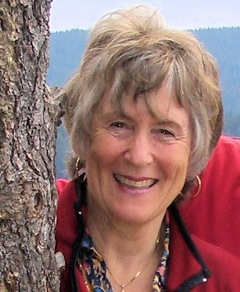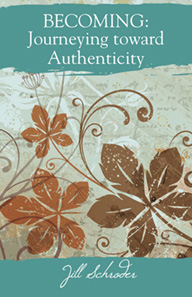 After our enthralling adventures on the way, way West Coast and visit to the Heritage Site Sgang Gwaay, we had numerous challenges and considerable good fortune.
After our enthralling adventures on the way, way West Coast and visit to the Heritage Site Sgang Gwaay, we had numerous challenges and considerable good fortune.
As we paddled the hour or so to our next campsite, Louscoone Pt., the skies got steely gray and the rains began. On arriving, we saw that it was low, low tide. (Check the distance we had to haul the loaded kayaks to ensure they would not float away while we slept!) We’re tired and wet already, the rain is still coming down steadily, and we have tents to erect and dinner to cook.
As we were schlepping our boats, dripping wet, unpacking and helping each other get set up, one of the guides quickly and efficiently helped me put my small tarp over my tent, else I might have been washed away by the deluge that night! Thanks Brie, you’re a peach! Our leader, Jo, said, cheerily, “Hey, guys, we’re doin’ it!” … meaning we were getting on with what had to be done, no whining, no blocking or wimping. Soon our tents were up, our leaders had a roaring fire going (have you ever tried making a fire on the West Coast in the rain? Jo and Brie were masters!), and dinner was ready. Working, we had stayed warm, and later the fire ensured we could dry out and warm up before bedtime. We even managed to dry some clothes by the fire during a mild drizzle. Fire over water 🙂 Significant challenges, and great good fortune.
 Here’s a shot of me fixing Martin’s special breakfast of Quinoa, Coconut milk, and dried and fresh fruit (thanks Martin!), the next morning for our group, after the rains had ceased. Yummy!
Here’s a shot of me fixing Martin’s special breakfast of Quinoa, Coconut milk, and dried and fresh fruit (thanks Martin!), the next morning for our group, after the rains had ceased. Yummy!
Significant challenges and great good fortune. And so it was with the unfolding of my stroke.
As the stroke team progressed with my assessment, it became apparent that in the hour since the event nearly everything had improved, and was continuing to improve. My face and speech were back to normal, miracle of miracles. The rest of my body was unaffected, except my left arm and hand. My arm was no long waving around on its own, but it was clearly not normal or functional; the movements were jerky and awkward, and it didn’t go where my brain told it to. My left hand had significant impairments — I could not open or close my fingers or move them individually. Startling and challenging, but also fascinating and intriguing. More on this later.
At this juncture we weighed the pros and cons on the use of the clot busting drug, tPA. We were still well within the three hour window of its efficacy. Dr. Yip, the stroke neurologist, outlined to us the purpose and the statistical risks of the drug, which are considerable; it can even be fatal. He observed that my body was doing a very good job of recovering without it. So we reached consensus not to use it at this point, but to continue to monitor the situation closely. I was put on strict bed rest, which meant lying prone the whole time. (I did not know it then, but the prone position creates the least work for the heart, and invites rest and sleep, which is what is most needed for healing and recovery after a stroke.)
The various tests and monitoring had found no cause, and I am not a classic stroke candidate, since I already do a pretty good job on those things recommended for stroke prevention. So it was a mystery (Mystery?) how and why this had happened, but it had.
I felt fortunate that my body was dealing with the stroke so well on its own that I did not need the serious drug intervention, and I felt equally fortunate that I was in the right place, at the right time, and the drug was minutes away if the situation changed. I was being monitored carefully and all I had to do was — well — nothing!
And that was actually the next stroke of good fortune, wrapped up in a challenge. It took me a while to get it.
Although my body seemed fine, (except for my left arm and hand), I was not allowed to get up, go to the wash room, or even use the bed pan myself or with Mike’s help. When I asked Heather, my pleasant, but definitely no-nonsense nurse, whether couldn’t I just pee on my own, she leaned down, putting her elbows on the railing of the bed, come quite close to me and said, “No, Jill, you can’t. When you need to pee, you buzz me, and that way I can assess your strength and condition as I help you with the bed pan. That’s what I’m here for.” And it began to soak in. I am not in charge here, I am in good hands, and things are unfolding in their own way, in their own time.
Before the stroke, I had been toying with the idea of getting a MacBook, a small, portable laptop. We had even priced them out, and found there was a sale on. I didn’t know how long I was going to be in the hospital, and it seemed like it might be pretty handy to have a MacBook. Heather again, “Jill, you don’t need a computer now. You need to be free of any stress.”
It soaked further into my awareness. In addition to the good fortune of minimal damage to my nervous system, and of not needing the drug intervention, came the blessing of not being able, or allowed, to do anything — of having the invitation and opportunity ‘just’ to be alive — to relax into simply being. I was not in charge, and there was nothing I needed to, or could, do. The health care professionals, my body, and the Mystery were running the show, supporting me, and all were doing a very good job. It was the beginning of a significant shift for me, and one for which I am extremely grateful. I knew about being and doing. Heck, I’ve written about the dynamic balance between them, and thought I had some maturity in these areas. But the stroke put this all into a very different perspective.
I also began to be aware of a part of my consciousness that was a witness to all that had happened and was happening. The witness was not directly involved — not scared, or relieved, or grateful for the good care, or curious at what would happen next. It was just watching and noticing… Jill having a stroke; the quick recovery of most of the affected areas. It saw the part of her that wanted to ‘get up and go’ right away, buy a computer and start working on the next project; and observed also the part of her that was letting go, settling in, relaxing, just flowing… And it/I started to become aware of the emotions, the energies, the effect on body and psyche of the different modes. The insights were like small seeds that had been planted, and they would continue to grow and flower over the next days and weeks.
Mike was there with me much of the time and a great support. My daughter and her family were able to up from Bellingham within hours, and that was another blessing. Your calls and messages came in from all over, and I felt held in a big embrace of love and caring.
In the meantime I had been moved away from Emergency, and was assigned a bed on the Neurological floor. As we were preparing to make the shift, we heard a commotion in Emergency, and learned that there was a helicopter on the way with the victim of a motorcycle accident, and everything was being readied for the triage to follow. We took a moment to wish that person well, and to be grateful again for my treatment, the outcome of my lucky stroke, and the opportunity to experience brain plasticity in action.
(To be continued)
Jill Schroder is the author of BECOMING: Journeying Toward Authenticity. Check the website for a sample chapter, or see the reviews to get a flavor for the volume



2 comments
Michele says:
Aug 28, 2011
Jill,
How lucky we all are to have you make such a wonderful recovery! To have you continue your contributions to us all and the commitment you have to making a profound difference. I imagine you may have seen this TED talk already but in case you haven’t here it is
http://www.ted.com/talks/lang/eng/jill_bolte_taylor_s_powerful_stroke_of_insight.html
Much love to you and Mike too
xoxo Michele
Jill Schroder says:
Aug 28, 2011
Thanks, Michele! Yes, isn’t that TED talk by JIll T B amazing! Also check out her book, same title, My Stroke of Insight, currently remaindered at Banyen.